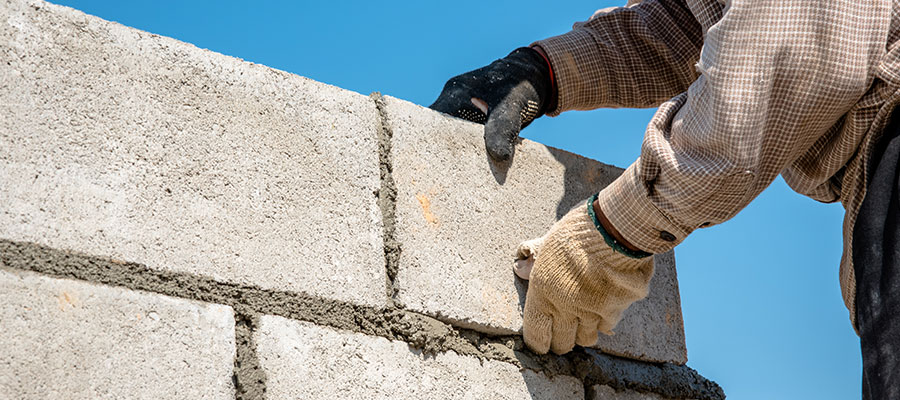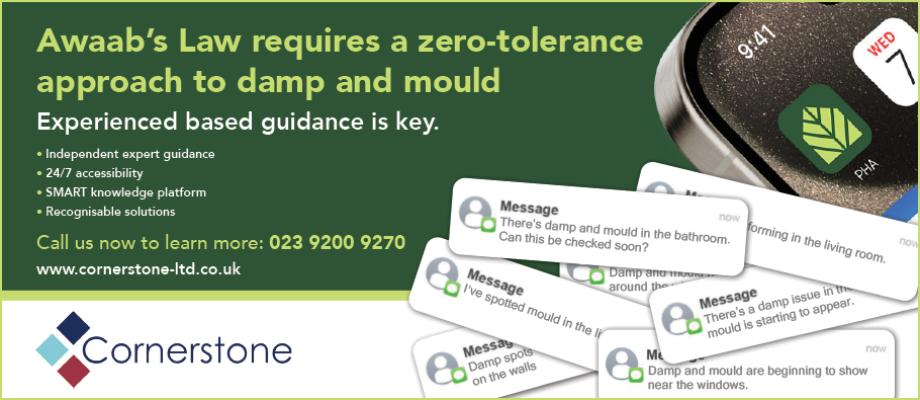Housing Association magazine editor Victoria Galligan asked Chris Stanley, Housing Manager at Modern Masonry, about the Better Built in Blockwork campaign and why specifiers should be choosing concrete blocks…
There’s obviously a lot more to concrete blocks than meets the eye! How long have you worked for Modern Masonry, and what are the best aspects of your job?
I joined fairly recently, but I think the name of the association, Modern Masonry embodies the best aspects of the job perfectly. Masonry is an essential set of materials which (quite literally) run through the fabric of society. The current media and policy focus on housebuilding really allows us to champion its benefits and promote our highly-skilled members. It is also a forward-thinking organisation, always looking to new methods and solutions which will have a positive impact on the masonry manufacturing industry and, by association, the wider UK construction industry. I’m excited to see how, as my role develops, I’ll be evolving alongside the Modern Masonry brand.

What are the benefits of building in concrete blocks for tenants?
The most obvious benefits to tenants are fire-resilience and acoustic performance. Masonry products are non-combustible and don’t allow the spread of fire in the same way as timber. Concrete blocks exceed minimum noise performance requirements, which means you are less likely to hear your family, housemates and neighbours through the walls. Building with concrete also makes for comfortable homes; the thermal mass helps keep temperature optimal all year round with less overheating in summer and less heat loss in winter.
The other benefits of masonry – for example longevity, durability, moisture resistance and rot-resistance – are equally likely to aid the Housing Association in the long term.
What are the most common problems faced by housing associations, and how might using concrete blocks have avoided those problems?
Overheating is rapidly becoming a major concern, particularly for vulnerable members of the community. Significantly, these are just the groups likely to be in public sector housing; the elderly, young and unwell. The warming climate is one contributor to overheating, however, new-builds also have improved airtightness to deliver energy efficiency in winter, which results in less air ventilation. It is widely accepted now that thermal mass is an important part of how designers can reduce the likelihood of overheating.
Specifying concrete blocks also has a positive impact on maintenance, reducing ongoing costs, disruption to tenants and maximise utilisation. Linked to this is robustness and resilience. According to the insurance industry, vertical floods (such as leaks) are the most likely water damage event in housing. In terms of resilience against water damage, masonry is simply the best and most reliable way to build, and even better when combined with concrete floors.
What do housebuilders need to know about sourcing concrete blocks and how are you helping them?
Thermal bridges, or paths through a building’s envelope where heat is lost, are an important consideration. As fabric insulation and air-tightness values have become more stringent, a larger percentage of heat is lost through thermal bridges.
In order to determine how much heat a building’s envelope lets through you need to calculate its U-value. To aid housebuilders, we have launched a U-value calculator, a simple-to-use online tool to replace this complicated equation. It is aimed at those unfamiliar with the calculations, highly accurate and free to use.
Thermal performance is one of 20 topics we provide data sheets on to help housebuilders. These are available to download on our website and include information on sustainability, good site practice, safe handling and different types of blocks.
Tell us about the Better Built in Blockwork campaign…
Earlier this year we conducted a survey into the aspirations of UK homemakers, which revealed they value the benefits that masonry construction can provide; the safety, robustness and durability. ‘Better Built in Blockwork’ is a reminder of these benefits, aimed at all those involved in masonry construction, from self-builders, developers and architects to students, merchants and house-builders.
It’s a reminder of how central the quality of build is, and how it can be delivered in masonry. We want to inform and educate, and highlight that turning to other solutions will not deliver the best build. Only masonry products offer all-round performance qualities. For housing associations who retain ownership and want their asset to retain value for years and years to come, this is absolutely key.
For more information on the Better Built in Blockwork campaign, supported by the Aircrete Products Association, Concrete Block Association and the Mortar Industry Association, see modernmasonry.co.uk
- Log in to post comments















